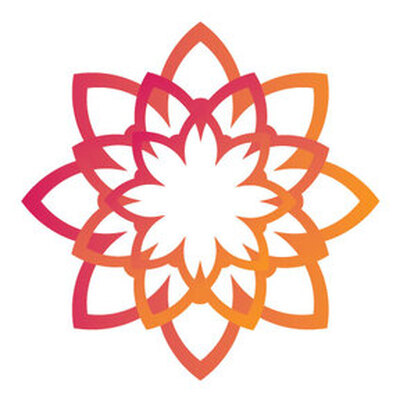More from NuLifeLineCare Rehab
More in Politics
Related Blogs
Archives
Social Share
Overcoming addiction at the best nasha mukti kendra in Uttarakhand
Body
Addiction treatment centre
If you are considering alcohol or drug addiction treatment, you may be wondering what life in a nasha mukti kendra actually looks like. You may have an image in your mind or preconceptions based on tabloid stories about celebrity rehabs, but the reality of alcohol rehab and drug rehab is often very different from what people expect.
In this blog, we will explain how nasha mukti kendra works from the moment you first reach out for help to the assistance available after you leave. We will also discuss some of the treatments available in different types of nasha mukti kendra as well as give some first-hand accounts from former clients about their experiences.
What is nasha mukti kendra?
Treatment at a nasha mukti kendra or de-addiction is the process of undergoing various stages of treatment to help you overcome an addiction.
Different nasha mukti kendra provide different treatment programmes, but all are intended to help you understand the underlying causes of your addiction and the triggers that provoke you to abuse substances or engage in compulsive behaviour. This enables you to address those causes so that you can create healthier coping mechanisms during difficult times or when cravings arise.
What can be treated at a nasha mukti kendra?
Nasha mukti kendra treat various types of addictions, including substance addictions to drugs and alcohol, behavioural addiction to gambling or shopping, and eating disorders.
The common thread in all of these conditions is the presence of uncontrollable compulsions. An alcoholic might feel compelled to drink excessive volumes of alcohol despite knowing the damage it is causing. Similarly, a gambling addict faces uncontrollable compulsions to gamble. It is compulsive behaviour despite the obvious harm that is the earmark of addiction.
How does addiction rehab work?
The first step in any effective nasha mukti kendra treatment programme is to evaluate the client on an individual basis. Based on what we now know about addictive behaviour, it is not enough to simply funnel every alcoholic into one nasha mukti kendra programme and every cocaine user into another. The old one-size-fits-all approach to addiction treatment does not work.
The evaluation process is designed to accomplish several things. First, we want to know what you are currently struggling with and how long that struggle has been ongoing. Second, we need to know if there are any other addictive behaviours or compulsions that you are experiencing. Third, we try to learn more about your history, home life and living situation. All of this information is taken into account before determining how to best treat you.
What can you expect from a nasha mukit kendra?
A comprehensive nasha mukit kendra treatment programme is made up of three stages: detox, addiction therapy and aftercare. Not every addiction requires detox, but for many substance addictions, it is crucial.
The therapy stage will depend on what you are addicted to, as well as the type of rehab you undergo. There are two main options; inpatient rehab and outpatient rehab.
Inpatient addiction rehab
Inpatient treatment programmes take place at a residential nasha mukti kendra and involve an extended stay in the facility. The environment is usually comfortable and luxurious with no distractions. This will allow you to spend all of your time focusing on addiction recovery without being surrounded by your normal triggers or negative influences.
Patients recovering in an inpatient facility will spend most of their day in treatment, taking part in a range of activities, including group therapy sessions, individual counselling, cognitive behavioural therapy, family therapy and 12-step work. As well as traditional treatments, patients may engage in holistic therapies such as art therapy, music therapy, yoga, sports nutrition, and massage.
Outpatient addiction rehab
Addiction treatment can also take place in an outpatient facility which differs from inpatient programmes in that you do not need to stay in the clinic. Instead, you attend regular counselling or therapy sessions before returning home afterwards.
Some people choose to receive addiction treatment on an outpatient basis because they don’t think their personal circumstances will enable them to commit to a long stay in a residential nasha mukti kendra.
However, addiction treatment at a residential nasha mukti kendra is usually far more effective than outpatient therapy because it provides a fully immersive addiction recovery experience. Inpatient treatment addresses every aspect of addiction; physical, mental, psychological and emotional; whereas outpatient services do not provide the same holistic approach.
A typical day at NuLifeLineCare nasha mukti kendra in Dehradun
A typical day at NuLifeLineCare nasha mukti kendra in Uttarakhand starts with a healthy breakfast, group meditation and then group therapy. This is followed by lunch which will give you time to rest and recover before the afternoon activities. These may involve recovery-specific activities or different kinds of therapy. There are also two one-to-one therapy sessions a week, book studies for different types of addiction, and ongoing personal projects. During the day, you will also be given lots of breaks to rest and chat with the staff and other residents.
Some of the therapies you may undergo
- Cognitive Behavioural Therapy
- Dialectical Behaviour Therapy
- Individual Therapy
- Group Therapy
- Music Therapy
- Art Therapy
How does a nasha mukti kendra help in addiction recovery?
Addiction is a complex, multi-faceted condition. Some people believe that a person with an alcohol addiction just loves drinking or that addicts are weak-willed or too lazy to quit. This couldn’t be further from the truth. There are many paths to addiction, but it usually develops from underlying mental health conditions or anguish such as:
- Depression
- Trauma
- Anxiety
- Genetic predisposition
- Environmental causes
By getting to the root of these causes systematically, you can reshape your relationship with your addictive substance and learn new ways of dealing with the underlying issues.
Nasha mukti kendra provides the perfect environment for recovery because you are surrounded by people who are going through the exact same process and will have experienced the same difficulties as yourself. At NuLifeLineCare nasha mukti kendra in Uttarakhand, many of our therapists have successfully overcome their own addictions, so they are able to guide and support you from a position of empathy and personal experience.
There is still a societal stigma about addiction, and while things are improving as we begin to understand more about its root causes, many people are reluctant to admit they have an addiction or to enter a nasha mukti kendra. However, once you commit to a treatment programme and meet other people on their own recovery journey, you will understand that there is nothing to be ashamed of.
What happens after you leave a nasha mukti kendra?
It is crucial to understand that addiction is not a condition that can simply be cured by a 3–5 months stay in a nasha mukti kendra. Long-term recovery is a journey with many twists and turns, small victories and minor setbacks. That’s why the best nasha mukti kendra offer aftercare programmes to help you long after you have completed your initial treatment programme.
Addiction thrives when it is able to isolate a person from their loved ones and support systems, and so the post-rehab stage is just as important as anything that you will experience in a nasha mukti kendra. An effective aftercare programme extends the sense of community of nasha mukti kendra so that you still feel connected and supported after you leave. This ensures that you are never alone as you continue on your journey to a healthier, happier life.
If you or a loved one is struggling with addiction, don’t wait for tomorrow, call the best nasha mukti kendra in Uttarakhand today at: 8958305058
Or visit: https://nulifelinecare.org/
https://maps.app.goo.gl/4RA9z73YBzfXMSyx8?g_st=ic
#drugsfreeindia #saynotodrugs #nashamuktbharat #nashamuktbharatabhiyaan #nmba #bestrehabcentre #rehabilitation #nashamuktikendra #bestrehabindehradun #uttarakhand #fightagainstdrugs #fightagainstaddiction #nomoredrugs #addictionawareness #addictionrecovery #recovery #nasha_ab_nahi #bandkaronasha #dehradun #addiction #bestnashamuktikendra #nulifelinecarerehab









Comments